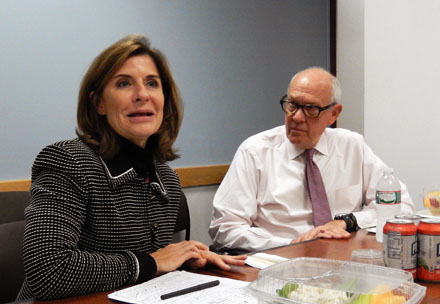RAND’s Linda Robinson unveils the secret world of special operations forces

October 17, 2013 – To shed some light on the secret world of special operations forces, the Shorenstein Center invited Linda Robinson, senior international policy analyst at the RAND Corporation. Robinson, author of One Hundred Victories: Special Operations Forces and the Future of American Warfare, has been granted unique and special access to the covert operators, and she shared her thoughts about how the forces have changed in recent years.
The number of special operations forces has doubled since 9/11, she said, and deployments are “more frequent and longer” than they used to be. She quoted the number of uniformed special operators at 33,000.
In the past two years, Robinson said, her research has followed three developments in the special forces deployed in Afghanistan. First, the “village stability operations and civil defense, or Afghan local police initiative” was the “first and most intensive part” of her research. In addition, the Afghan special operations forces, she said, have become “the most proficient part of the Afghan military.” Finally, she has seen the “evolution of the U.S. and coalition command structure” in which leaders have tried to “get more synergy out of their respected specialties and assignments.” This kind of coalition “represents a great leap forward,” she pointed out, and is “applicable to the future, in the way they exercise control.” However, there is not likely to be another deployment of special operators so large in the future, she predicted.
When asked how she was able to get such coveted access to the special operations forces, Robinson responded, “I was willing to do my homework.” By living among the operators in uncomfortable and arduous conditions before asking any questions, she allowed them to get used to her presence “without causing other people disruption.” She accumulated credibility by “not trying to go for the sensational thing.” She was careful “not to shy away from unpleasant things, but also not to blow them out of proportion.”
Article and photo by Janell Sims, Shorenstein Center.